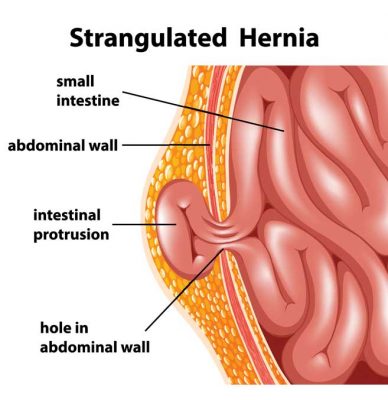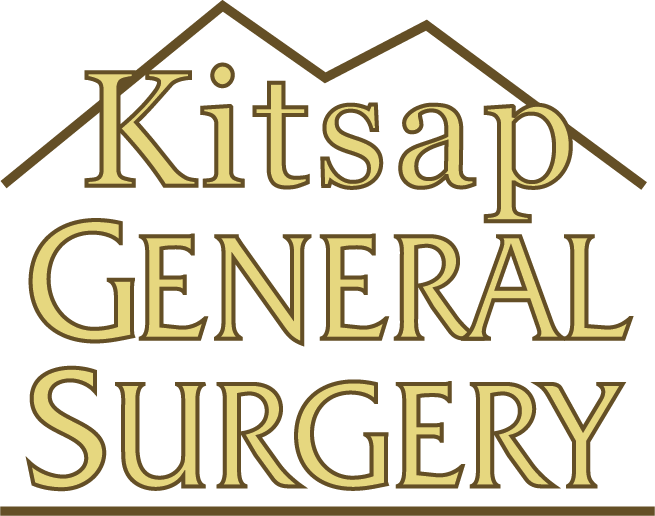Hernia Repairs
What Is A Hernia?

A hernia is a hole in the strength lining of the belly wall. The abdominal wall has three general layers: skin, fat, and fascia. The layer closest to the abdominal organs is the fascia. A hernia is a hole in the fascia. People will often feel a bulge at the site of a hernia. This bulge is the bowel, fat, or other abdominal contents pushing through that hole.
The most common places for people to have hernias are on the belly button (an umbilical hernia), the groin (inguinal or femoral hernias), or at the site of prior operations (incisional hernias). There are other types of hernias that people can get, but these three are the most common types of hernias.
A hernia can cause serious complications if left untreated like bowel obstruction, bowel that dies, or even death from one of these. Hernias can be painful, but most are not.
What Causes A Hernia?
Lifting heavy items isn’t the only risk factor for getting a hernia.
Some other risk factors include:
- Obesity
- Smoking
- Pregnancy
- Bouts of coughing
- Straining during a bowel movement
- and incorrect posture
When Are Hernia Repairs Necessary?
Postponing surgery for your hernia is a decision that you should make after you consult with one of our surgeons at Kitsap General Surgery. It is possible for you to have a hernia and not experience any pain, discomfort, or any other symptoms that are associated with hernias. If this is the case, then you and your doctor may decide to take a wait-and-see approach while your symptoms are being monitored.
When Is Hernia Surgery An Emergency?
A major complication occurs when the bowel gets stuck in a hernia. This is called an incarcerated hernia, which may lead to the strangulation of the bowel. When the bowel gets stuck, it can lose circulation and cause gangrene to that part of the bowel. This results in the need for immediate emergency surgery. This usually presents as a mass that can’t be pushed in and causes the inability to have a bowel movement along with increasing pain. A strangulated hernia can cause several symptoms, such as:
- Fever
- Swelling, redness, and pain at the hernia site
- Bloating and constipation
- Nausea and vomiting
- Increase in the size of your hernia
If you think you have a hernia and are experiencing any of these symptoms you should go to the emergency room for evaluation.
How Does A Hernia Get Repaired?
Hernias are fixed with minimally invasive surgery or an open approach. In a minimally invasive approach, small holes are made in the abdomen, and a camera is inserted into the body where a hernia can be viewed. Instruments are placed in the holes and are used to fix a hernia. In an open approach, an incision is made on top of a hernia and the hernia can be fixed.
Most, but not all hernias, are closed with a mesh to reinforce the spot where a hernia occurred. These meshes have been used for decades and are considered very safe.
What Is The Recovery Time After Hernia Surgery?
New minimally invasive medical technology may allow you to return to your daily routine in a shorter amount of time than in the past, but full recovery can still take up to six weeks depending on the approach. People are usually feeling better from surgery within a couple of days. It may take more time to be able to lift light items. The length of time for a full recovery after surgery depends on many factors, including your:
- Overall health
- Age
- Commitment to your surgeon’s instructions for recovery
What Are The Complications Of Hernia Surgery?
Hernia repairs are usually safe, but there are several complications that you may experience. You should check with your surgeon for the specific complications. Some examples include bleeding, infection, nerve damage, chronic groin pain, recurrent hernia, heart attack, stroke, and dying from surgery.
What Kind Of Doctor Can Provide Hernia Repairs?
Kitsap General Surgery has surgeons specializing in hernia repair, and they can provide you with a diagnosis. They can also recommend non-surgical management or the type of surgery that would be best if it needs to be repaired.
What Are The Alternatives To Hernia Surgery?
If you are interested in other options to treat your hernia, then Kitsap General Surgery can suggest alternatives to having a hernia surgery procedure. Usually this involves observation. On occasion you may be advised to wear a binder, but trusses and hernia belts are not usually recommended.
If you decide to delay having surgery on your hernia, keep in mind that your hernia will not go away on its own and can get bigger as the muscles in your belly get weaker.
Hernia Surgery Doctor Near Me
It’s estimated that around one million Americans undergo hernia repairs each year.
If you are suffering from a hernia and live in the Kitsap Peninsula area, then schedule your initial consultation with Kitsap General Surgery today. Our surgical team specializes in hernia repairs, and will provide you with a thorough description of your hernia surgery and recovery.
Call us if you would like to speak with a hernia specialist.
360.613.1335
Call Us
360.613.1335
Message Us
To request an appointment
Locate Us
Get directions to our office
